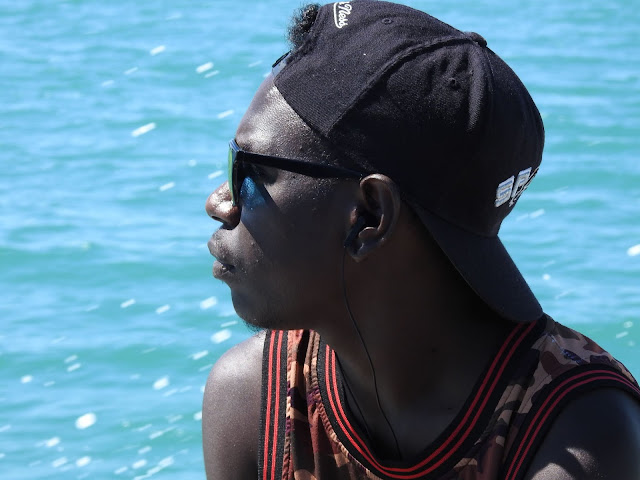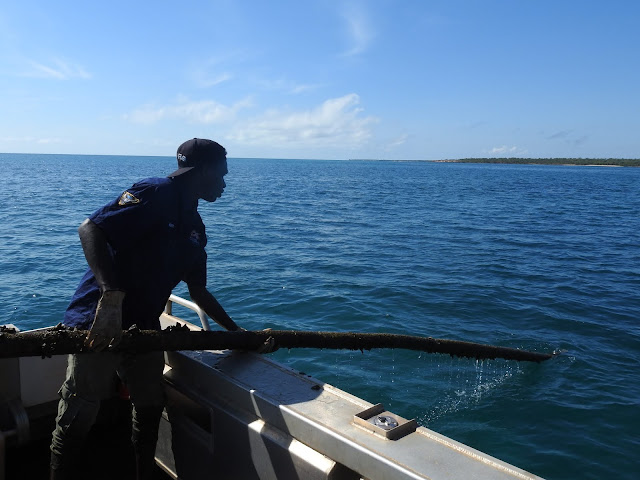BOAT PATROL
Hello from Croker Island
The last month we have had quite a lot of days with strong wind warnings in place. The last week however has seen a break from the strong winds so we have taken advantage of this to get a few boat patrols done.
Charlie Wadaga's sharp eyes scan the sea looking for anything unusual or suspicious.
Some may recall earlier this year a couple of nets we retrieved and deposited in a calm corner of a bay. Due to the wet season and the boggy tracks we were unable to access this area until recently. The nets were drag out of the water to dry and then burnt along with some other marine litter that we collected along this section of the beach.
The residents and rangers have noticed a huge increase in the amount of marine litter being washed up on the beaches of Croker Island. This has become a huge problem, not only on Croker Island but also in many places around the planet.
We arranged to meet the girls at Wanakutja for lunch. Wanakutja is located on a sheltered bay however the water was quite shallow for the last 300 metres, requiring a slow and cautious approach. Charlie, sensing there may be an opportunity to spear a fish or stingray grabs his spear and scans the clear shallow waters.
The girls had brought along some of the older ladies so there was quite a group to share lunch but plenty to go around.
While enjoying lunch Clayton spotted a stingray swimming in the shallows. He grabbed his spear and raced down the beach. The following series of photos tells the story of what happened.
His aim was true however it did not disabled the stingray. Below the hunter chases the stingray through the shallow water to retrieve his spear.........When the water gets too deep, Clayton has to abandon the chase........And watch his spear being carried off by the stingray...........
After about 20 minutes of patient waiting, the stingray returned to the shallows. Clayton's son finished the job.
At the right time of the year, when the stingray are fat they are highly sort after to eat.
After lunch we continued the boat patrol and the girls went on their way. Approaching Adjamarragu Point we noticed a large male crocodile on the beach and decide to take a closer look.
He allowed us to get to about 100 metres from him before entering the water. The crocodile numbers on and around Croker Island have been increasing over recent years. In the NT crocodile numbers are controlled by a managed harvesting of crocodile eggs in the wild. In this area, no such harvesting happens at the moment.























Comments